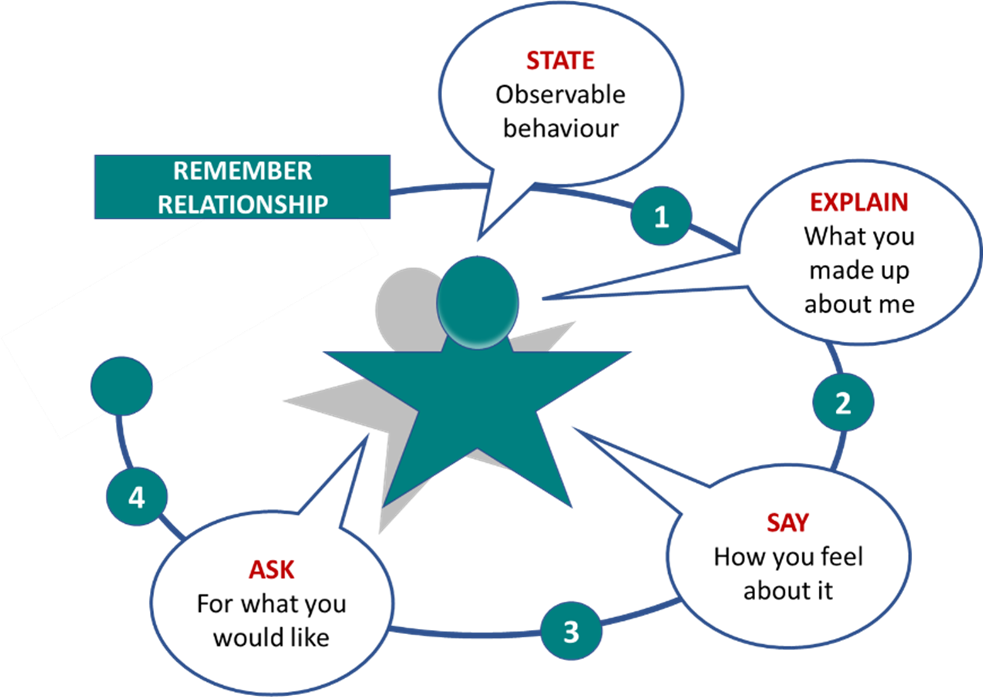(Compassionate communication)
I poured my heart out in that email I sent to him last week. No response. How freakin’ rude. He obviously doesn’t care about me. Screw him!
How many of us have had this kind of internal self-talk when we are triggered by a behaviour that we don’t like and take personally? How many of us blame the person for our anger, our hurt feelings? How many of us have noticed ourselves emotionally overreacting to what seems like a minor trigger?
Elizabeth (my wife) and I were in marriage counselling a few years ago. The therapist confronted me with something that “triggered” an angry reaction from me. When I calmed down, I apologized to him for overreacting. His response back, I have never forgotten.
“You didn’t overreact to what I said. You were reacting to something held in memory that likely happened to you years ago.”
We have two meta motives that can compete and need to be kept in balance. One is purpose and creativity, the other is personal safety. When not overwhelmed by stress; when we feel psychologically safe, centred, and capable, we desire to live our life informed by the former. This is when the best version of us shows up. However, when we are under extreme load, we become inwardly focused, and overly concerned with psychological safety. We become self-protective, rigid, resistant to change, and just wishing for certainty.
So, in our interaction with others, when we get “triggered” by something said or done, we can confuse the trigger for the cause of our negative feelings like hurt, anger or anxiety. Our subsequent thoughts of blaming and revenge are often followed by harmful behavioural reactions. In our minds, the trigger was the cause of our reactions. It is their fault I am feeling and acting this way. They deserve it.
We’ve all been there. Why was I so enraged by that comment? Why did I say what I said? I have now made this situation worse.
In fact, when we are not stressed out, we more likely see the triggering comment as just stimulus, but not the cause of our negative feelings and thoughts. What causes our negative self-talk is likely a triggered memory of something in our past of the same nature, that posed a real threat to our psychological safety, and subsequent feelings of anxiety. Likely this scenario went on in our family of origin and we developed a self-protective habit, that got triggered today, by what this person said. We spent many years, with little or no power, trying to survive in an environment where everyone we interacted with had the power. We developed intelligent strategies to adapt and survive in these environments. They often became long standing habits, unliving their usefulness.
Two helpful tools and frameworks to increase the likelihood of a useful response when triggered are captured in 1) NAIL acronym, and 2) Feedback Wheel
Act #1 (NAIL it)
- Step 1: Notice the sensation in your body when you are triggered
- Step 2: Allow the feeling to be in your body, as just sensation, without judging it as good or bad, and without attaching yourself to the self-talk.
- Step 3: Interrogate the real origin of this feeling, and subsequent reactive thoughts, to whether those thoughts are useful to act out. If you decide not, then…
- Step 4: Let go of those negative feelings and thoughts, and craft and choose your wise response
Act #2 (Feedback Wheel)
- Step 1: Describe the observable behaviour
“I sent you an important email request a week ago, and …..” - Step 2: Explain what you made up about that
“What I made up about that behaviour, is that when I get no response from you, I assume I am not important to you.” - Step 3: Say how you feel about that, when you make that assumption
“I end up feeling really sad and alone, and then I get really mad.” - Step 4: Ask for what you would like
“If you are unable to return a thoughtful response to what I put out, would you please just send me a quickie that says, you need a few days to think about this.”Most importantly keep the focus on your role and responsibility for recovering good relations, AND, let go of the outcome.


